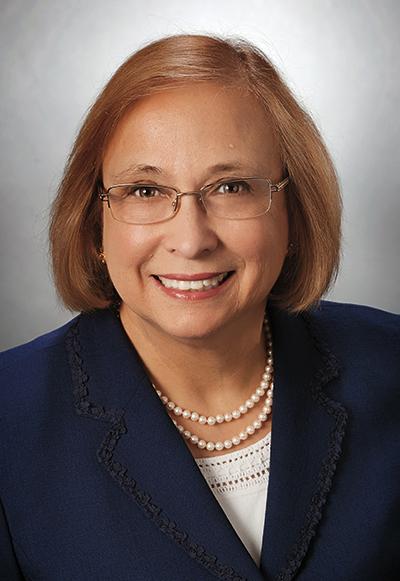Judith Boggs, ’69: A Life of Service Dedicated to Helping Others “Get a Fair Shake”

When Judith Boggs, ’69, was named in 2020 as a Fellow of the American Bar Association’s Administrative Law and Regulatory Practice (Administrative Law) section, a colleague remarked: “Judy has lived her life in the trenches of the regulatory state, giving everything she has to help government work wherever she has served.”
Boggs began that service in Kentucky right after she graduated from the Law School. The state’s Human Rights Commission needed to have briefs written for two complex cases related to discriminatory practices by large employers. “I was pretty young to be doing work of that significance, but I had been well prepared at the Law School, including through a civil rights seminar taught by Julian Levy,” she said.
Next, she served as counsel to Kentucky’s Mental Health Department, where her UChicago education again proved beneficial, this time through a course on psychiatry and the law she had taken, cotaught by Norval Morris and a psychiatrist. As one of two lawyers (the other was the patient advocate) on the department’s staff, Boggs’s portfolio was expansive. “I did some of everything, from providing legal advice, drafting contracts and handling personnel matters to writing regulations, arguing in court, and putting together proposed legislation for which I then lobbied,” she said.
She had moved to Kentucky with her husband, Danny Boggs, ’68, whom she married during her second year. “He was dazzling,” she said. “And all these years later, he still is.” (Danny Boggs has served on the US Court of Appeals for the Sixth Circuit since 1986.)
Boggs moved to Washington, DC, in 1973, where she joined the Department of Health, Education, and Welfare, to work on the first Medicaid regulations for what were then known as intermediate care facilities for the mentally retarded. In 1978, her experience and skill earned her a place in the new federal agency merging Medicare and Medicaid (now known as the Centers for Medicare and Medicaid Services). She served there in various roles until 1987, including as special assistant to the agency’s administrator. While there, among other notable projects, she helped develop the Katie Beckett waivers (which enable people, who otherwise would be eligible for Medicaid only if in an institution, to receive care at home), prospective payment systems, and a proposal for reform of the Medicaid program.
She then went to work in the White House for two years as a senior policy adviser. One of her assignments was to work with states to develop better ways of providing integrated services to people with low incomes. “We were addressing a perpetual problem with public programs: the programs are siloed, but people’s needs aren’t,” she said.
After some years back in Kentucky, where she served for a time as in-house counsel for a trade association, as well as practicing at a firm and in her own solo practice, she was appointed in 2002 to the US Department of Labor’s Administrative Review Board, and then in 2004 as a judge on the Department’s Benefits Review Board, where she continues to serve today, commuting between her home in Louisville and her DC chambers.
The Benefits Review Board handles appeals, mostly from the decisions of administrative law judges, that primarily arise under the Black Lung Benefits Act and the Longshore and Harbor Workers’ Compensation Act and its extensions. She served as the Board’s chief judge from 2019 to 2023.
She has been a leader in many ABA units, including chairing three of them—the Administrative Law section, the National Conference of the Administrative Law Judiciary, and the Outreach Committee of the Judicial Division.
“I think you could say that my career has been focused on helping to make sure that everyone gets a fair shake, a fair chance to fulfill their potential,” she said. “I never really had a plan for what I might do next, but things kept coming together.”
She doesn’t have a plan for what she might do in retirement either, or any present intentions of needing such a plan. “The work I’m doing now is enormously satisfying,” she said. “Every case we see is consequential, not only for the parties before us, but for others whose lives are affected, and my colleagues and the staff are great to work with. I can’t see any reason to stop doing something that I enjoy so much, and where I am making a contribution.”